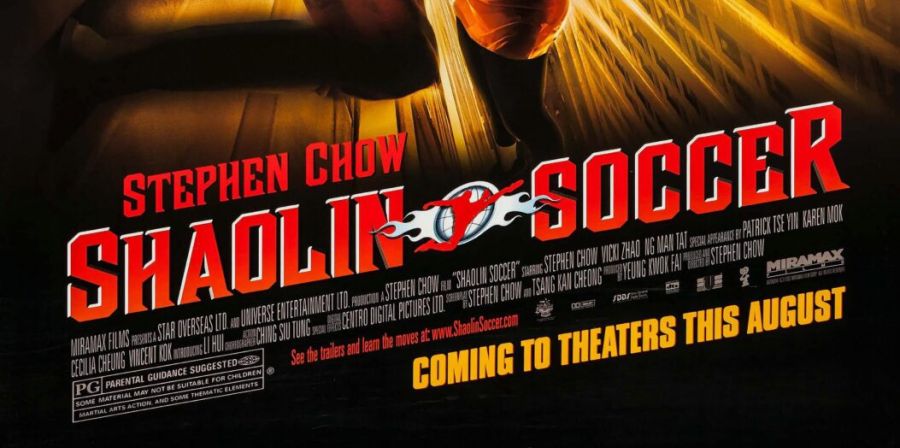

It takes a lot of skill to master the comedy genre. Even more so when attempting to reach a global audience because tastes and linguistic styles can differ. By embracing the qualities that made Stephen Chow famous in Hong Kong while also excluding some of the more regional humour, "Shaolin Soccer" became one of these rareities. The region experienced the emergence of pan nationalism and globalisation in the late 1990s, which led to the emergence of films with a bigger worldwide audience. The emphasis in this case is less on the Cantonese wordplay that wouldn't work in overseas markets and more on visual hilarity.
A monk named Sing (Stephen Chow) wants to spread the benefits of martial arts. He locates his former martial arts brothers and teams up with Fung (Ng Man Tat) to build a football squad that will participate in a cup competition. A squad run by Hung (Patrick Tze), who caused Fung's paralysis when he was a young football star, is also in the competition. They encounter a baker named Mui (Zhao Wei) along the road who, despite her outward demeanour, is a master of Tai Chi. Obstacles are thrown at the team from all directions as they advance in the competition, and Hung tries to stop them.
In this film, we get to glimpse a distinct side of Stephen Chow. His typical portrayal is that of an egotistical, success- and money-obsessed impostor who is ultimately saved by the closing credits (take "Kung Fu Hustle" as a prime example). The protagonist in this story is more innocent, yet she is nevertheless a really nice person.
Less mockery and popular culture allusions that would localise the film are present. The finest illustration of this is how the custodian starts to resemble Bruce Lee more and more; this is a more universally understood reference.The humour is quick and frequent, occasionally breaking the fourth wall. The important factor is that it is just enjoyable. Despite all the humour, there is a true respect for martial arts, and Zhao Wei's Tai Chi baker is one example of how they may be used in surprisingly useful ways. The gang that appears in one of the funniest parts in the movie is atoned for by joining the monks' squad once more, demonstrating appreciation for the artistic aspect of spirituality.
But more importantly, is it funny? The quick response is yes. Some of the funniest visual jokes ever in a Hong Kong film start right off the bat. Some fantastic sequences result from the absurdity of these out-of-shape monks being able to perform amazing feats. The first match in which they regain their prowess is full of wacky hilarity and absolutely hilarious.
However, a good movie cannot exist without a good antagonist, and Patrick Tze provides us with an especially repulsive one who draws on his career history as a suave menace who is perpetually smug and overconfident while puffing on a large cigar. The ideal adversary.
The CGI is effective and purposefully so, and the tone is consistent. There are many jokes and a toe-tappingly energetic musical score.
Just one of the greatest comedies ever made, to put it briefly.


